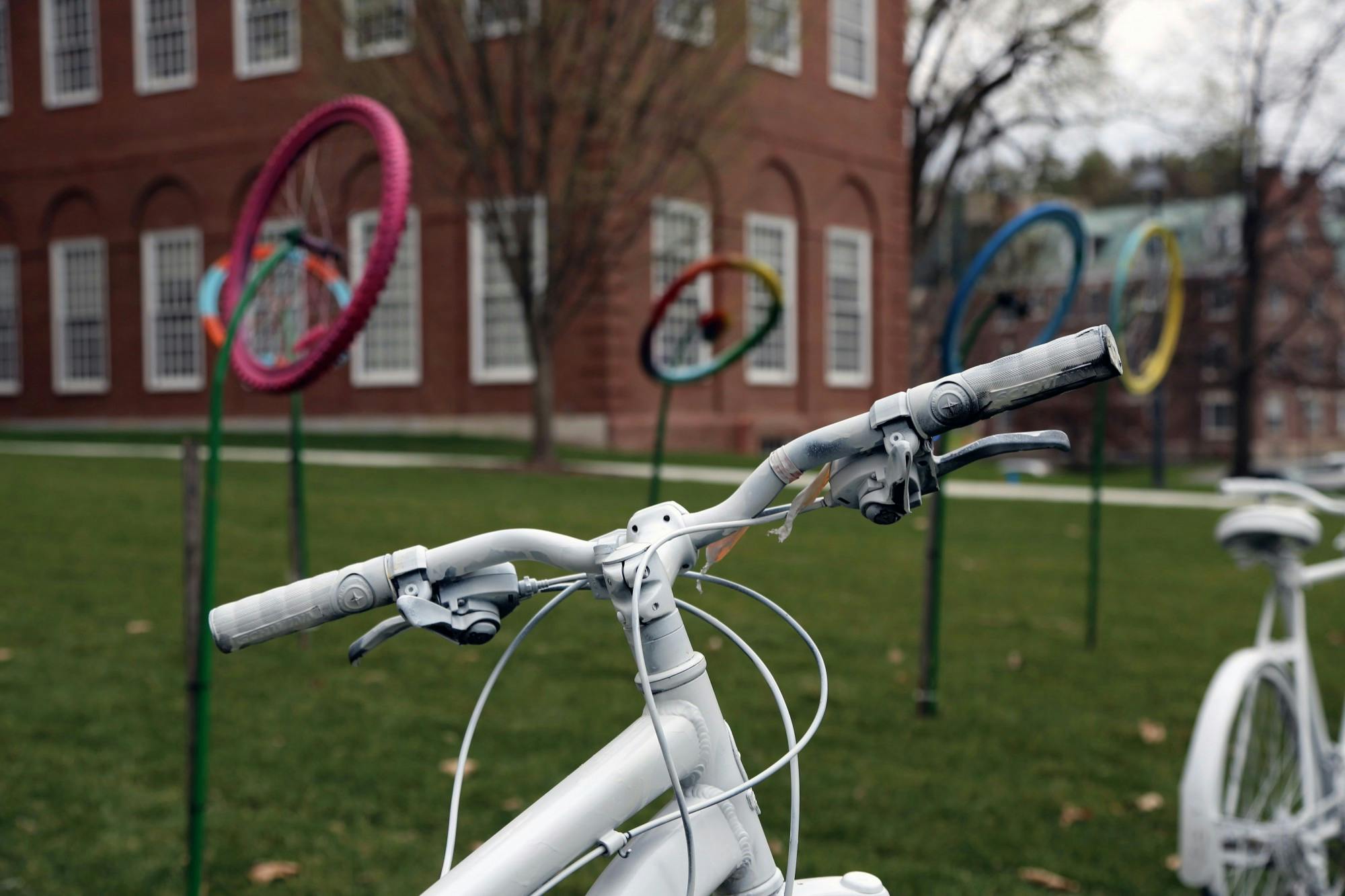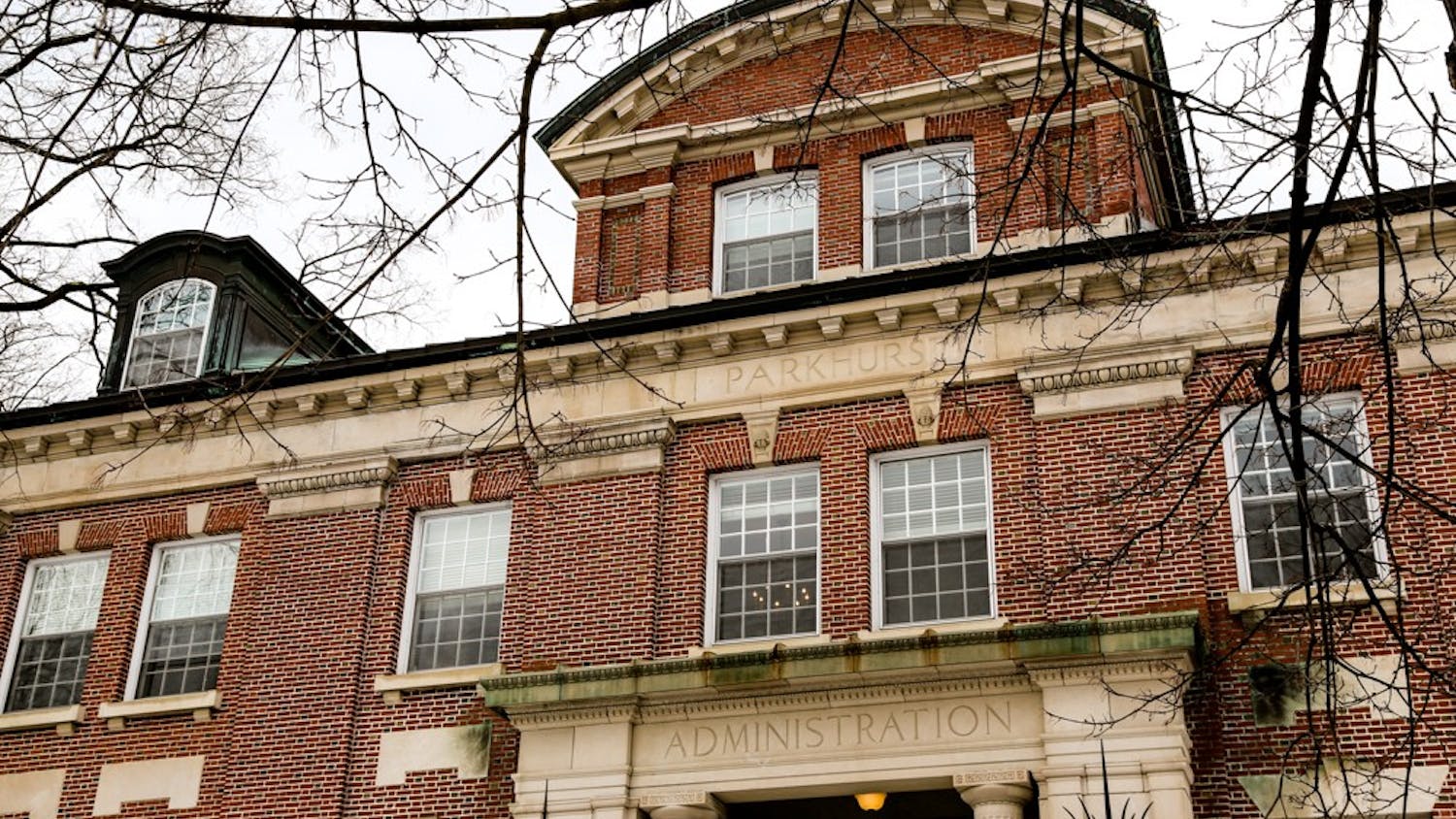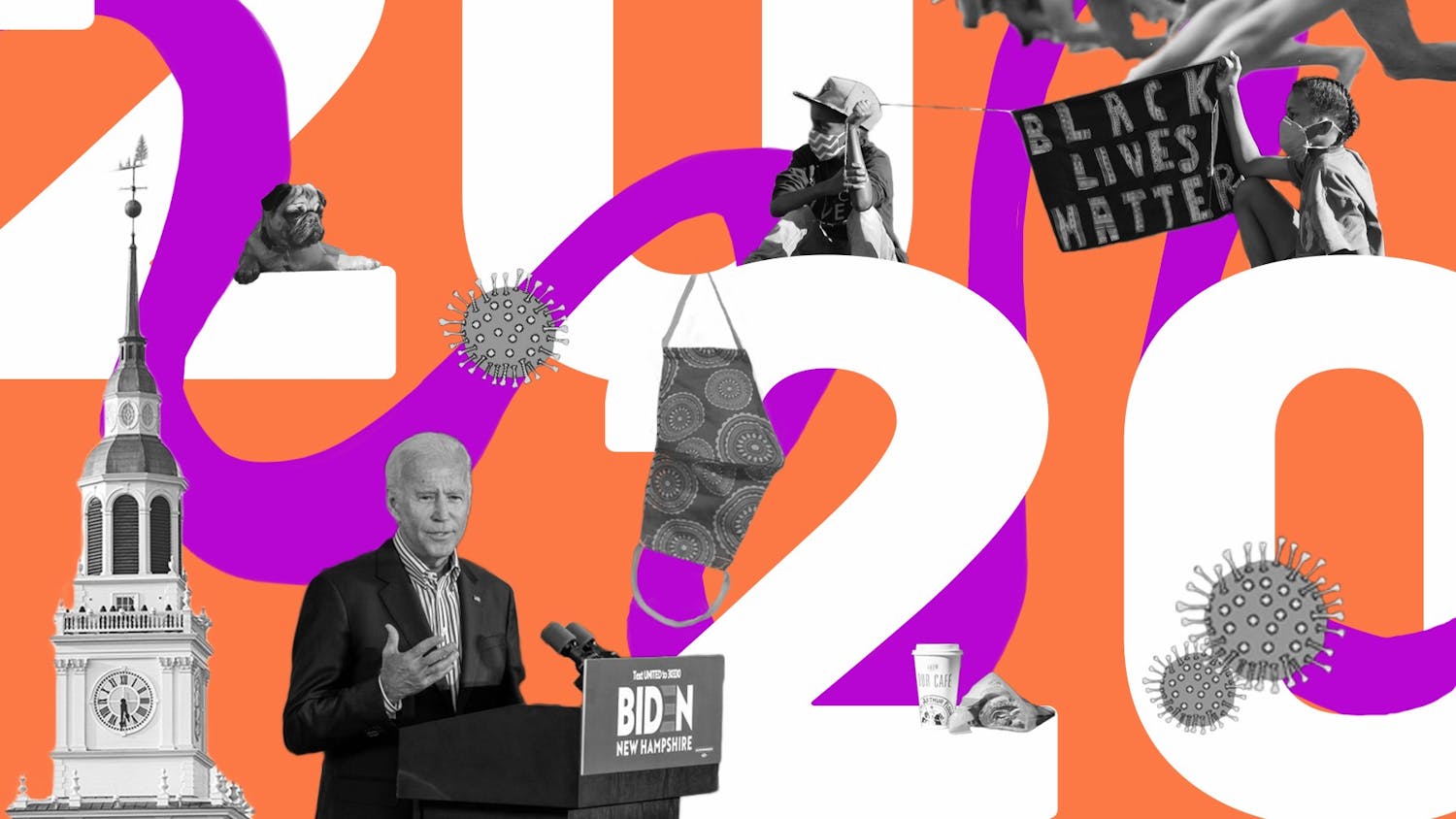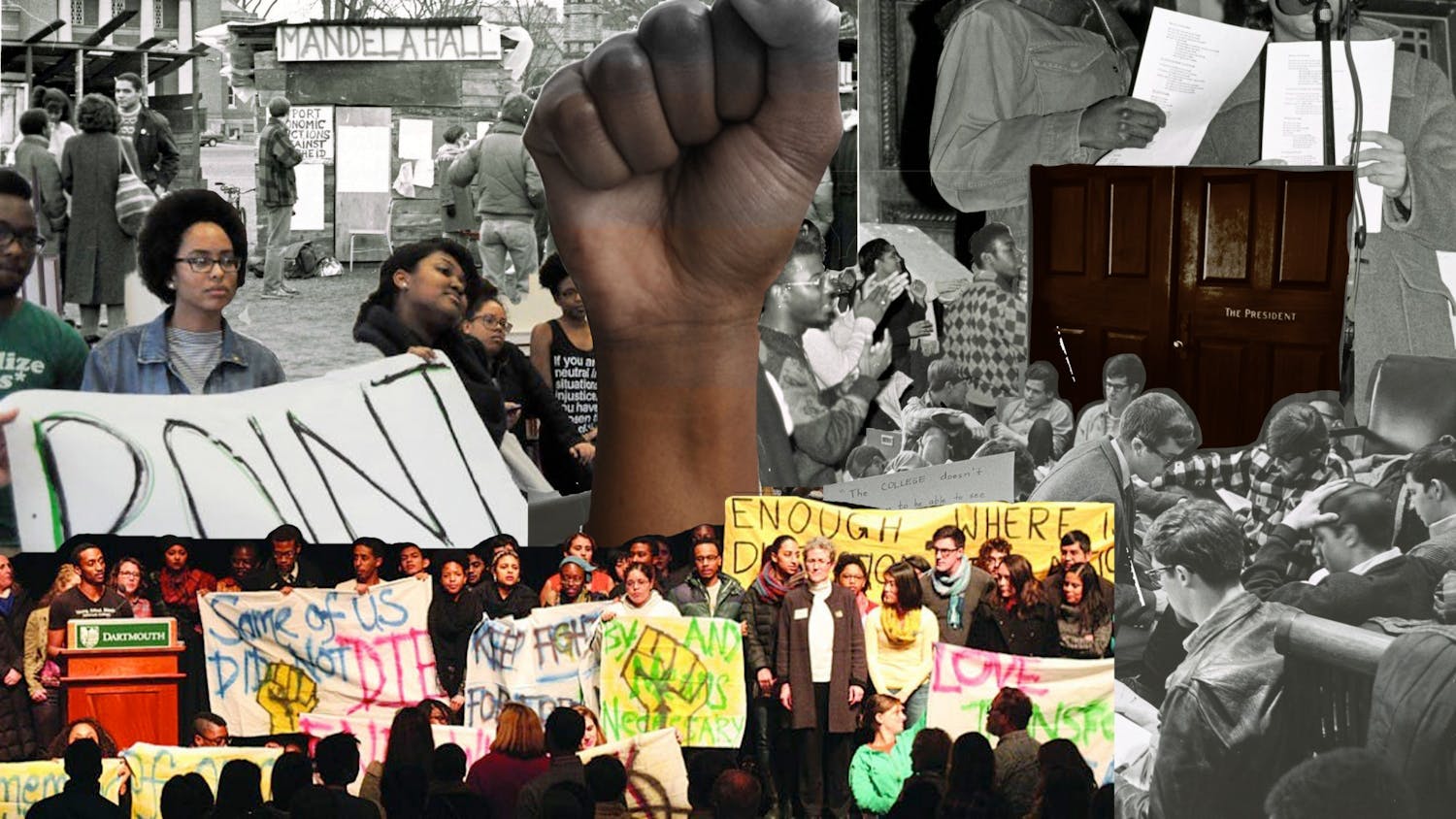With last Thursday marking the 51st annual Earth Day, the Dartmouth community celebrated with a number of in-person and virtual events to raise awareness for environmental issues and the importance of sustainability in the face of climate change. The week’s programming included a number of activities put on by student-led organizations and the sustainability office and wrapped up with a town hall of Dartmouth administrators titled “Five Years into ‘Our Green Future.’”
The week began with an on-campus scavenger hunt organized by the sustainability office, which prompted students to look for clues around campus on the details and current progress of the “Our Green Future” report — a report published by the College in 2017 outlining Dartmouth’s sustainability goals in energy, waste and materials, water, food, transportation and landscape and ecology.
On April 20, the Afro-American Society and Dartmouth Student Union co-hosted a lecture and Q&A session by guest speaker Niki Franco on “disaster capitalism” — which describes corporate actors’ capitalization on natural disasters — with a focus on the geographies of Florida and the Caribbean.
On April 21, the sustainability office and Sunrise Dartmouth, a chapter of the nationwide climate justice-oriented national youth organization and political action committee, organized a “Vigil for the Planet” at Collis Common Ground. During the service, a number of students shared their personal experiences grappling with the effects of climate change and called for both the College and greater public to do more to mitigate the climate crisis.
Samantha Palermo ’24, one of the speakers at the vigil, shared an anecdote about stepping back and appreciating personal and human connection with the outdoors.
“It’s really important to think about the planet and our impact and our relationship with nature all the time,” Palermo said. “I think it’s really important to recognize the interconnectedness of all of us and the planet.”
Rachel Kent ’21, a senior intern for the sustainability office and member of the Earth Week committee, said that amid all of the events that took place last week, the student organizers wanted the emphasis to be placed on the Our Green Future report.
“[The Our Green Future report is] pretty bare bones in a sense that it doesn’t usually provide very tangible step-by-step plans to get to these goals,” Kent said, adding that she only remembers the report being talked about her freshman and sophomore years before it “vanished.”
According to Kent, it was this curiosity surrounding what happened to the report that inspired her, along with other students, to do some digging and find out what had happened.
“We decided that bringing this back to the forefront of the general Dartmouth community’s consciousness would be a good thing to do for Earth Week because [the report] is something that had already been done, but something that needed to be revisited,” Kent said.
Kent said that the student organizers have found many instances of insufficient institutional support, both in staffing and financial resources, to meet the report’s goals.
“Obviously with the pandemic, things just sort of got put on the back burner, which in some ways is understandable, but is not excusable either,” she said. “Climate change is still happening, and we're still exacerbating it as an institution.”
Last Monday, Emma Doherty ’21 and Lucas Rathgeb ’22 published a letter and petition addressed to the Dartmouth administration calling on the College to conduct an immediate review of the Our Green Future report and to publicly commit to other sustainability goals. According to Doherty, while Dartmouth has made progress in some of the six categories outlined in the Our Green Future report, other categories such as food and transportation have been disregarded.
“As the data stands now, it doesn’t look like [Dartmouth is] going to be even close to meeting benchmarks by the timeline set in 2017,” Doherty said.
Earth Week wrapped up on Monday with a town hall featuring executive vice president Rick Mills, Provost Joseph Helble and vice president of campus services and institutional projects Josh Keniston. The panelists commented on Dartmouth’s environmental impact, its sustainability goals and the College’s status in reaching the goals it set for itself in the Our Green Future report.
Head of the sustainability office Rosi Kerr, who hosted the town hall, asked panelists whether the College’s sustainability goals are “aggressive” enough.
“One can always argue that we should be doing more,”Helble responded. “But when I look at our rate of greenhouse gas reductions over the past five years and look at what it would take to meet our 2025 goals, we’re making progress, but we’re not quite on track.”
The College has set its 2025 emissions goal for carbon dioxide at 38,517 megatons. In the 2020 fiscal year, Dartmouth emitted almost 57,000 megatons of carbon dioxide, according to a dashboard on the sustainability office website.
Responding to a student’s question about Dartmouth’s progress in areas other than heating and energy infrastructure, Mills said that the College has primarily focused efforts on its energy goals and is lagging behind in some other areas.
“There were goals to create new goals; it was a little squishy and ambiguous. There is no question, the focus has been directed primarily at the energy one…” Mills said. “So, short answer is, we really focused on energy and some of those lagged. We are making some progress, mostly on dining, but we’ve got more work to do.
According to Kent, upon its submission to the administration at the conclusion of the panel discussion, the petition contained the signatures of about 600 Dartmouth students, staff, faculty and alumni.




